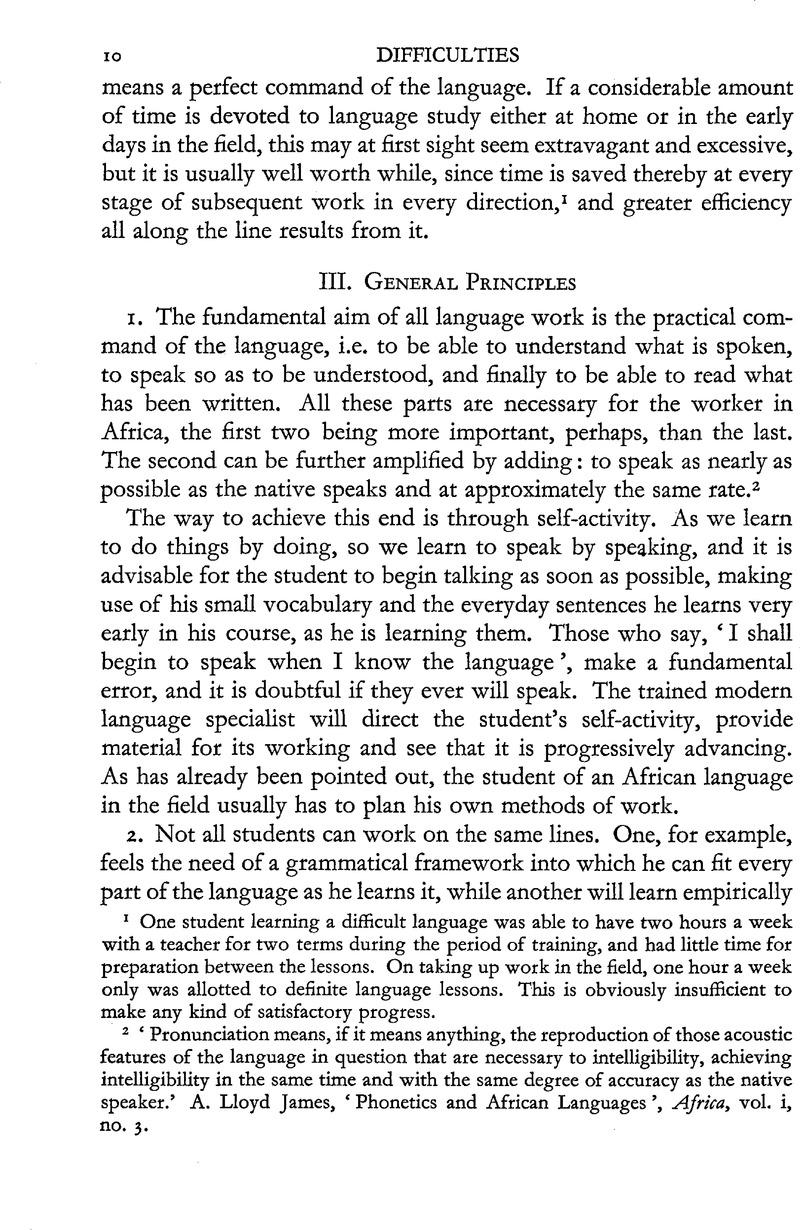Article contents
III. General Principles
Published online by Cambridge University Press: 21 August 2012
Abstract

- Type
- Practical Suggestions for the Learning of an African Language in the Field
- Information
- Africa , Volume 10 , Issue S2: Practical Suggestions for the Learning of an African Language in the Field , 1937 , pp. 10 - 13
- Copyright
- Copyright © International African Institute 1937
References
page 10 note 2 ‘Pronunciation means, if it means anything, the reproduction of those acoustic features of the language in question that are necessary to intelligibility, achieving intelligibility in the same time and with the same degree of accuracy as the native speaker.’ James, A. Lloyd, ‘Phonetics and African Languages’, Africa, vol. i, no. 3Google Scholar.
page 12 note 1 The African is not alone in being unable to explain the intricacies of his language: the European often also cannot either describe his own speech habits or explain the grammatical constructions of his native language.
- 1
- Cited by




